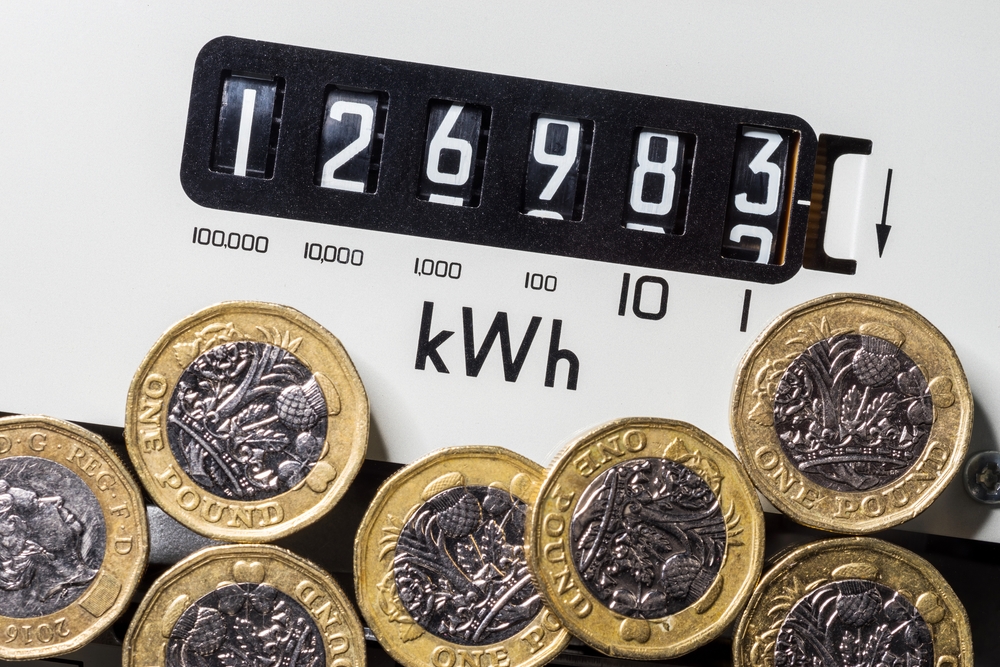
Understanding Your Energy Contract: A Step-by-Step Guide
Are you seeking to streamline your spending on business energy contracts? Here is how to identify opportunities for financial savings with these deals.
View Article
Here at Business Energy Claimline, we are experts at helping companies across the UK recover lost energy commissions.
As you’d expect, organisations often rely more than households on energy. In fact, the UK’s commercial and industrial sectors are together responsible for roughly two-thirds of the country’s electricity demand.
When it comes to business energy, smaller enterprises tend to be tied to fixed-price contracts, with many of these rolling over in October or April. However, the corporate community’s recent struggles with high energy bills are well-documented.
According to the Federation of Small Businesses (FSB), 13% of small firms negotiated fixed energy contracts in 2022 – and, as a result, found themselves needing to continue paying for power at last summer’s peak market rate well into 2023.
This was despite wholesale energy prices having dropped – leading FSB to demand that energy suppliers let affected companies renegotiate these contracts.
All of this has happened in the context of the UK Government downscaling support for businesses facing extremely high energy bills. As April 2023 began, the Energy Bill Relief Scheme was replaced with the less generous Energy Bills Discount Scheme.
However, whether or not you negotiated a corporate energy deal yourself as the market peaked, you would be well-advised to look into the possibility that your business has lost money in the form of energy broker commissions.
If you suspect as much, our legal experts can investigate the matter on your behalf. We invite you to make a business energy claim with us today.
Given how little time business owners typically have outside of running their companies, finding additional time to browse corporate energy deals in search of the best rates can be tough.
It doesn’t help that, while households can source both their gas and electricity from the same supplier and cover it all with just one ongoing payment, businesses need separate quotes for their electricity and gas.
Often, this leads to businesses seeking the support of an energy broker, who can liaise with energy suppliers and come back to you with seemingly suitable deals for free.
However, contrary to what some brokers may say, this service is not free – as the broker will take a cut from what you pay on the energy plan. This cut – the ‘commission’ – is legal as long as the broker discloses it at the point of sale.
Unfamiliar with the terminology? Our guide on Energy Broker Commissions Explained is worth a read.

When it comes to arranging your business energy contract, it’s advised that you first determine how much energy your firm uses monthly or annually before contacting a broker.
This isn’t just so that you can report your needs accurately. It’s also so that, when you scrutinise your financial outlay under the contract, you can more easily pick up on any signs that the broker may have mis-sold the deal.
A broker offering you a business energy contract is legally required to be open and honest about the commission they’re making. The broker should not, for example:
If you uncover evidence that a broker did any of these things when selling you a business energy contract, there is a strong chance that you would be able to recover lost energy commissions by taking legal action against the broker.
With this, our team of energy experts and legal specialists can help.
If you believe that your business was mis-sold energy, we offer a no-win no-fee solution, winning back thousands for businesses in overpayments. Start your claim today!
Losing money to energy commissions you hadn’t even realised you were paying is frustrating – to say the least!
Unfortunately, business energy brokers operate in a largely unregulated industry, and so can often get away with concealing commissions from their customers. Still, these brokers aren’t necessarily able to get away with it for too long.
It’s worth underlining here that a business energy contract can be harder to get out of than a domestic equivalent. The former is likely to provide you with fewer opportunities for cost-effectively switching to a new deal.
However, even if you have been duped about the commissions you are paying on your current energy plan, you can still act to recover lost energy commissions. What follows is a step-by-step guide to taking this course of action.
You likely already know where to start with this. After all, if you are reading this, something somewhere likely tipped you off that your business is possibly incurring higher gas or electricity costs than what should really be the case.
The evidence you gather in support of your business energy claim can include:
If you’re unsure what signs to look out for when reviewing these items, it may be time to…
If you can’t make head nor tail of whether your business energy contract evidences undisclosed commissions, rest easy – you can trust us with analysing the documentation on your behalf.
Once you have made initial contact with us about your business energy claim, we can assess whether you are indeed eligible to make one.
If we decide that you do have a strong case, you can opt for us to take the case further as we pursue the claim. In advance, we will request all of the following from you:
Don’t fret if you struggle to trace all of the details you would be expected to give us at this stage. We can also gather some of this information independently if needed.
Once we have received all of the documents we need for valuing your claim, we’ll proceed with the next steps, aiming to keep the process hassle-free at every turn.
With us, you won’t have to waste time sorting through bewildering paperwork or having to liaise with either the broker or energy supplier you used. We’ll handle these responsibilities on your behalf.
How long will it take to process your business energy claim? The duration of waiting for a verdict will depend on such factors:
Ultimately, a business energy claim can take just a few weeks on one end of the scale or as long as a year on the other.
No matter how much time we need to spend on your case, though, we will keep you firmly in the loop along the way. You can even use our online client file view system to regularly check on your case and see how it is progressing.
It bears emphasis that, even if you have good reason to believe that commission payments may have slipped out of your corporate bank account without you fully realising, your legal case against the broker could still fail.
For example, we might establish via a free assessment that you aren’t eligible for a compensation payout after all – in which case, we will give you the reasons why. Other times, the claim may be ruled over by the court.
This second possibility is why we operate a ‘no-win, no-fee’ system when chasing business energy claims. That way, if your case does fail, you won’t have to pay us a penny.
Now, if you do win the case, you will be paid a rebate – with us taking a cut to account for our legal fees.
At Business Energy Claimline, we’ve helped hundreds of businesses successfully recover lost energy commissions. Check to see if you’re eligible to make a business energy claim today.

Whether or not you reckon you have lost retrievable commissions on your energy bills, it’s simply good practice for a business owner to continually seek new ways they could rein in their commercial property’s gas and electricity costs.
Naturally, the further you reduce the amounts of power your business routinely consumes, the more money you can save as a result.
Now, when figuring out a plan of action for how to make these reductions happen without hampering your workforce’s productivity, it can be a real challenge of which cuts are sound to make. Any knock to this could also trickle through to the customer/client experience your firm delivers.
Here are some areas of work where energy demand can be especially high:
However, even if you run one of the most energy-intensive types of business, you could be pleasantly surprised by what financial savings you are able to make just by enacting a few clever strategies.
Let’s take a look.
How are you supposed to effectively plug gaps in your company’s energy efficiency if you can’t be certain exactly where those gaps are? For this reason, an energy audit is essential.
The term ‘energy audit’ might look scarily technical, but basically just refers to an inspection aimed at uncovering areas of your business you can make more energy efficient – and consequently more financially worthwhile as well.
It’s also worth keeping in mind that some commercial energy suppliers offer energy audits free of charge to their customers.
An energy audit usually only takes between four and six hours to complete, though the actual duration will depend on the building’s size.
As mentioned, jumping to a different energy supplier can be a tricky call for a business. However, it may be worth considering the leap if:
If changing your energy supplier is a practical option, then research alternative suppliers carefully.
You are likely to prioritise looking into what you would pay per kWh of power you use. However, some suppliers may offer certain sweeteners – like free energy management software – with the potential to sway your decision.
You might even come across promising suppliers specialising in green energy, like wind and solar power – with further positive implications for your budget.
If you look closely around your workplace for electrical light fixtures, you might find that many of those you do find are holding incandescent light bulbs.
However, on their own premises, many businesses have replaced these traditional light bulbs with LEDs – as the latter are much more energy efficient.
Though incandescent lights send electricity through filaments that respond by warming up enough to emit light, roughly 90% of that energy is wasted as heat – leaving conventional incandescent bulbs grossly wasteful by modern standards.
Those standards have been set by LEDs, which can generate light from far smaller currents of electricity. All in all, an LED light bulb can illuminate just as brightly as an incandescent equivalent while drawing upon a mere 10% of the same power.
No matter how energy efficient your workplace’s light bulbs happen to be, you should still get yourself – and any onsite employees under your wing – into the habit of turning lights off in a room whenever it empties.
Meanwhile, certain spaces – like meeting rooms and storage cupboards – tend to only be used on specific occasions. For this reason, it is unlikely that you will need to keep these particular areas artificially lit for long stretches of time.
Even in those spaces where workers spend a lot more time, why not look into creative ways to capitalise on sunlight trickling through the windows?
Obviously, lights are hardly the only electrical element in a workplace. At the end of each work day, remember to turn off the likes of computers and printers at the plug, as doing so will save you more energy than going for the standby option.
It’s perfectly possible to turn a standard thermostat up or down in accordance with your workplace’s temperature requirements. However, it’s also a hassle, since you would have to make those tweaks manually or ask someone else to do so.
That’s where a programmable thermostat could come in handy. These are automated and can be scheduled to dial the heat up or down at specific times. With a programmable thermostat, you can:
The last of those options is only available with some smarter devices but would allow the central heating system to take a backseat of sorts when the outside temperature starts making your workplace warmer than it needs to be.

At Business Energy Claimline, we go to great lengths to put our clients at ease. We’ve worked with businesses of all shapes and sizes, across a wide range of sectors, helping them claim back thousands in mis-sold energy contracts.
If you’re ready to start your journey in making a business energy claim, get in touch. We’ll just need a few details from you to get the ball rolling. Next, our team of expert energy specialists and legal advisors will review your case, keeping you informed on how to proceed with the next steps.

Are you seeking to streamline your spending on business energy contracts? Here is how to identify opportunities for financial savings with these deals.
View Article
Do you run a church and believe you have been mis sold church energy by a broker? With our help, you can find out whether compensation might be available.
View Article
When it comes to the day-to-day strains of running a business, worrying about potentially mis-sold energy contracts shouldn’t be one of them. With a team of legal experts on hand to assess, build and submit a solid case, we’ve secured thousands of pounds in rebates on behalf of our clients.
Start My Claim